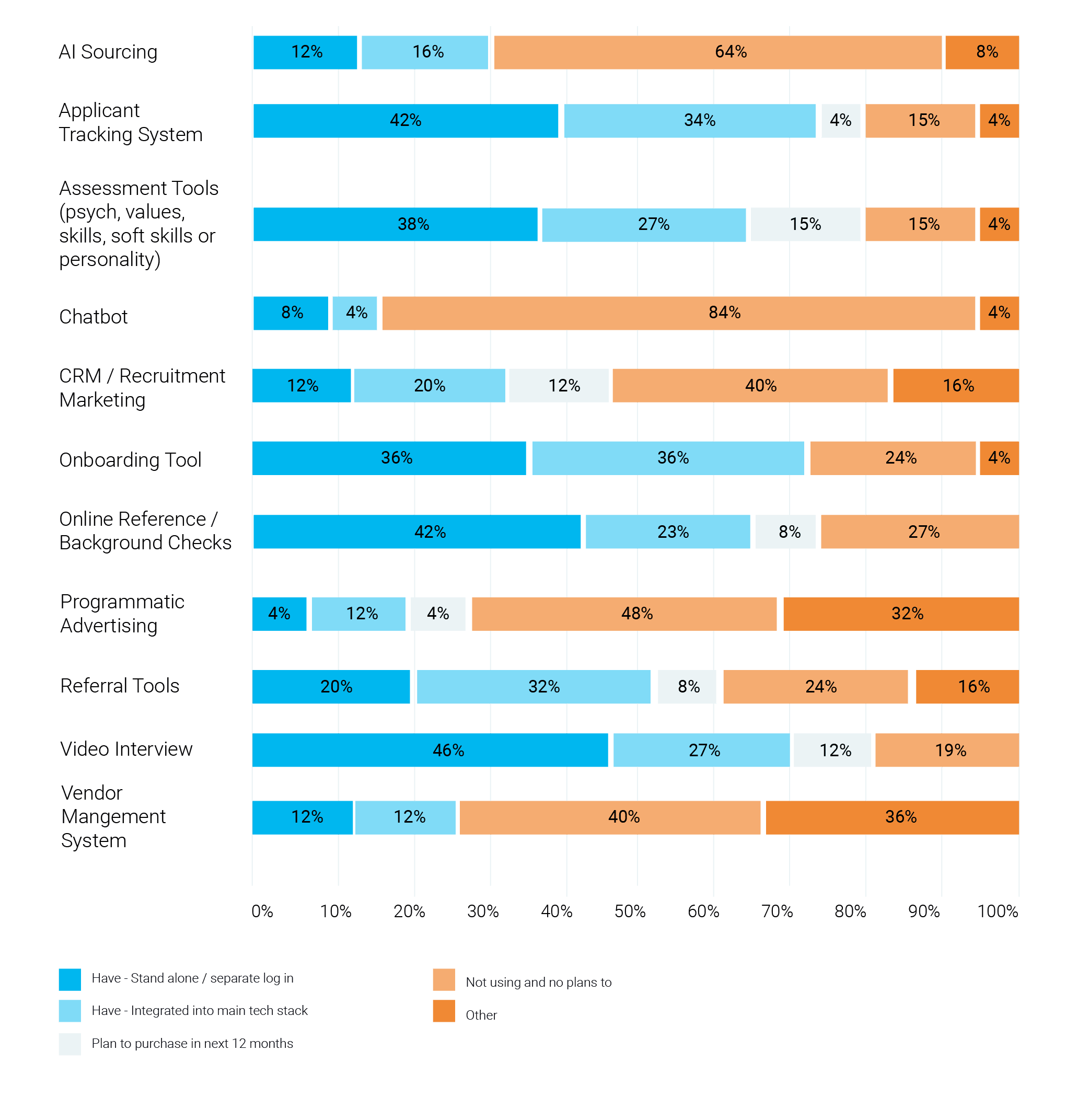- Blog
- Contact centres: attracting and retaining the right talent
Contact centres: attracting and retaining the right talent

In this blog, we address the strategies contact centre recruitment channels can use to attract and retain quality talent and how to correctly compensate these employees whether they are in-office, working remote or in a hybrid capacity.
Attracting and retaining quality contact centre talent
In Smaart Recruitment’s 2022 Contact Centre Best Practice Report, 40% of an organisation’s overall recruitment is placed on fulfilling contact centre recruitment requirements and 62% of these organisations understand how challenging it is to recruit high-quality contact centre agents at the moment.
Contact centres are reporting significant decreases in the quality of candidates with only 15% of recruiters believing the quality of contact centre candidates has improved between January 2021 and now. A staggering 46% believe the quality has significantly decreased during the same time period.
The number one reason why it’s become harder for recruiters to secure contact centre candidates is that salaries are simply not competitive enough. Other reasons include:
- Hiring manager expectations are too high (11%)
- The workload is too high for the talent team headcount (25%)
- Limited budget for recruitment (11%).
To combat these statistics, contact centre recruiters and organisations are hoping to re-assess their employer branding and improve candidate attraction methods while building strong talent pools and pipelines to combat the lack of quality talent coming through the doors, as well as meet salary expectations.
Let’s address how your organisation can improve its contact centre recruitment success and retain existing quality employees.
Salaries and remuneration
Managing Director of People2People, Mark Smith, said in an interview with Seek.com that there is a growing sense of understanding among organisations that salary increases are necessary in order to stay competitive.
“We haven't seen this major push on salaries for some time. More employers understand the cost of having somebody leave is going to be so much more than if they pay them an extra $5,000 or $10,000 to stay. This is especially the case now when the market is so tight for talent.”
According to the Australian Bureau of Statistic's Wage Price Index Report for the quarter ending March 2022, wages grew, nationally, by 2.4%. This has had a direct effect on organisations around Australia with 22% of organisations stating ‘unsatisfactory salaries or conditions’ as a popular reason for retention difficulties.
From a recruitment perspective, attracting and retaining quality candidates starts by ensuring the remuneration of contact centre employees are up to market standard… or higher. For reference, according to Smaart Recruitment’s aforementioned report, the national Australian average annual base salary of contact centre employees in the customer service industry are:
- Frontline agents: $55,800 + super
- Team leaders: $82,000 + super
- Workforce managers: $127,000 + super
- Head of departments: $175,100 + super.
Salary packages aren’t the only compensation to consider improving. Bonuses and incentives can be the differentiating factor between a candidate choosing your organisation versus a competitor. In fact, over 40% of frontline agents surveyed in that report said they had received some form of bonus or commission over the past 12 months.
Realistic hiring expectations
Hybrid work is here to stay. Employees got a taste of what remote work is like during the pandemic, and when people have the chance to work flexibly, 87% of them take it. The same applies to contact centres, where there is a management expectation that 48.1% of contact centre employees will remain in a working-from-home capacity post-COVID.
A highly sought-after candidate work requirement is that should a contact centre offer flexible working arrangements, whether that be hybrid or remote, high-to-full flexibility is preferable. This means agents can choose where they want to work 80% - 90% of the time. Only 58% of contact centres surveyed are currently offering this.
With 46% of organisations expecting their contact centre to increase their hiring of remote workers, organisations should consider how to offer increased flexibility to seem more attractive as a potential employer. From a productivity perspective, absenteeism is 52% lower for organisations that offer work-from-home capabilities and frontline employees believe they are 19% more productive working remotely. From the customer perspective, customer satisfaction results (CSAT) exhibit little to no change when an employee works in-office or remotely.
Workload of contact centre recruitment teams
When asked whether contact centre recruiters are expecting to recruit more or fewer agents in 2022, 42% stated ‘more’ or ‘about the same’. Considering that 32% of contact centre recruiters are working on 50 or more vacancies at any one time per recruiter and 14% are working on over 100, facilitating the necessary support to help meet these recruitment goals, organisations need to step it up.
Psychometric testing can help indicate the suitability of an applicant to an agent’s role but only 42% of organisations are using it for contact centre recruitment. The recruiting software market was valued at $3.43 billion in 2021 and is expected to hit $5.8 billion by 2030 with a compound annual growth rate of 6.1% from 2022 to 2030. The recent advancements in recruitment tech are based on the market’s need to simplify recruiting procedures.
Artificial intelligence and automation are paving the way forward for the future of recruitment and offering the support talent acquisition teams need. In LinkedIn’s 2022 Global Talent Trends report 67% of recruiters said artificial intelligence was saving them time in the recruitment process. 58% of employers found AI to be most helpful when sourcing candidates, 56% found it useful in the screening of candidates and 55% relied on it for nurturing candidate relationships.
Early adopters of AI-powered recruiting software reported that their cost per screen decreased by 75% and turnover reduced by 35%. Developments in artificial intelligence software can now help sort resumes, narrow down large candidate pools to ideal applicants and implement facial recognition technology to help understand a candidate’s emotional intelligence through careful analysis of vocal tones. Virtual agents can feed candidates information about positions and companies.
 Applications used for contact centre recruitment
Applications used for contact centre recruitment
Improve employee engagement and candidate experience
Employee disengagement costs the Australian economy $2 billion every year. Highly engaged employees increase profitability by 21%, engaged teams sell 20% more and disengaged employees have 49% more accidents at work and commit 60% more errors and defects.
Improving employee engagement creates a domino effect; happier employees translate to more satisfied customers which translates to a better customer experience which translates to healthier bottom line figures. Ways in which employers can improve employee engagement include:
- Implementing a regular employee engagement survey
- Taking the time to sit down and have a conversation with employees
- Re-assess internal communication processes
- Creating a learning hub
- Embracing flexible workplace arrangements.
If candidates have a positive experience, they are 38% more likely to accept job offers from that business and 81% of them will share their good experience with their network. CareerPlug’s 2021 Candidate Experience Report asked candidates how important the recruitment process is to their overall candidate experience. They asked job seekers to rate this on a scale of 1 through to 10 with 10 being very important. They found the overwhelming response to be between an 8 and a 10.
To facilitate a better candidate experience:
- Revisit your interview process
- Ensure your application process is simple, efficient and seamless
- Implement recruitment marketing tactics
- Set clear recruitment process expectations
- Create informative and clear job descriptions.
Contact centres need to be dynamic
In a world where customer expectations have never been greater, contact centres have never been more critical to business success. They have also never been more complicated to establish and manage.
From new technology and evolving processes to endless data being produced, the modern contact centre requires a dedicated focus and expert touch that combines human and automated solutions to ensure things run smoothly - whether it’s business as usual or to respond to seasonal surges. Running a business is hectic enough without adding contact centre management to the to-do list.
Outsourcing can help take contact centre recruitment pains off your hands and into the hands of experts who understand how to establish quality onshore and offshore teams.



